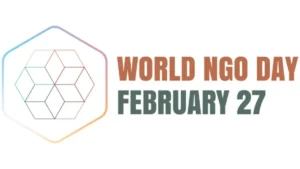World Food Day, observed annually on October 16th, serves as a global call to action in the fight against hunger and malnutrition. As we approach World Food Day 2024, it’s crucial to understand the significance of this year’s theme and the ongoing challenges in global food security.
Theme for 2024: Right to Foods for a Better Life and a Better Future
The 2024 celebration of World Food Day revolves around the theme “Right to Foods for a Better Life and a Better Future.” This powerful message emphasizes the fundamental human right to adequate nutrition and underscores the critical role food plays in shaping our present and future.
Understanding the Right to Food
The concept of the right to food is not new. It’s recognized in the Universal Declaration of Human Rights and two legally binding international covenants. This right encompasses more than just the absence of hunger; it includes:
- Diversity: Access to a wide range of food options
- Nutrition: Consumption of foods that provide essential nutrients
- Affordability: The ability to purchase necessary foods
- Accessibility: Physical access to food sources
- Safety: Assurance that available food is free from harmful contaminants
The Paradox of Global Hunger
Despite the world’s farmers producing enough food to feed more than the global population, hunger persists as a significant global issue. Some stark statistics highlight this paradox:
- Approximately 733 million people face hunger worldwide
- Over 2.8 billion people cannot afford a healthy diet
These numbers reflect a complex web of challenges, including:
- Repeated weather shocks
- Conflicts
- Economic downturns
- Inequality
- The ongoing impact of the COVID-19 pandemic
The poor and vulnerable, particularly those in agricultural households, bear the brunt of these challenges, reflecting widening inequalities both across and within countries.
The Impact of Unhealthy Diets
Unhealthy diets have emerged as the leading cause of all forms of malnutrition, cutting across socio-economic classes in most countries. This includes:
- Undernutrition: Insufficient intake of calories and nutrients
- Micronutrient deficiencies: Lack of essential vitamins and minerals
- Obesity: Excessive body fat accumulation that can lead to health problems
Many vulnerable individuals are forced to rely on staple foods or less expensive options that may be unhealthy. Others suffer from:
- Unavailability of fresh or varied foods
- Lack of information needed to choose a healthy diet
- Opting for convenience over nutrition
Exacerbating Factors
Several factors further complicate the global food security situation:
Protracted or Prolonged Crises
These crises are driven by a combination of:
- Conflict
- Extreme weather events
- Economic shocks
Vulnerable Agrifood Systems
The global agrifood system is particularly susceptible to:
- Disasters
- Crises
- Impacts of climate change
Paradoxically, these systems also contribute to environmental degradation through:
- Pollution generation
- Soil, water, and air degradation
- Greenhouse gas emissions
- Biodiversity loss
The Path Forward: Transforming Agrifood Systems
Transforming agrifood systems presents a significant opportunity to:
- Mitigate climate change
- Support peaceful, resilient, and inclusive livelihoods for all
This transformation requires concerted effort from various stakeholders:
Individual Actions
- Make healthy food choices
- Reduce food waste
- Support sustainable food practices
Government, Enterprise, and Organizational Efforts
- Share knowledge and expertise
- Support sustainable and resilient food systems
- Invest in agricultural innovation and technology
World Food Forum 2024
The World Food Forum (WFF) plays a crucial role in shaping the future of global food systems. Launched in 2021, it serves as the premier global platform for actively shaping agrifood systems and accelerating the achievement of the Sustainable Development Goals (SDGs).
WFF Annual Flagship Event
- Date: October 14-18, 2024
- Location: Food and Agriculture Organization of the United Nations (FAO) headquarters in Rome, Italy (with online participation available)
- Theme: “Good food for all, for today and tomorrow”
The event will bring together:
- World experts
- Impassioned changemakers
- Visionary leaders of all ages
WFF Focus Areas
The WFF concentrates on three key areas to forge new paths of action and multi-sector partnerships:
- Youth action
- Science and innovation
- Investment
These efforts aim to create agrifood impact at local, regional, and global levels, working towards a more sustainable, resilient, inclusive, and hunger-free future for all.




 National Science Day 2026: Honouring the...
National Science Day 2026: Honouring the...
 World NGO Day 2026: Why February 27 Matt...
World NGO Day 2026: Why February 27 Matt...
 International Polar Bear Day 2026: Why P...
International Polar Bear Day 2026: Why P...








